If you prefer the English version, click on the following link 👉 HERE
¿Quién Gobierna tu Reino Interior?
La vida se desenvuelve como un tejido que confeccionamos puntada a puntada, cada día. La mayoría de estas puntadas son decisiones, algunas casi automáticas como el café de la mañana, y otras, monumentales, que alteran el patrón completo de nuestro tapiz existencial. En este telar se enredan los hilos de las circunstancias, los afectos que nos anclan o nos impulsan, y las situaciones que nos ponen a prueba. Sin embargo, bajo toda esa complejidad yace una verdad tan simple como aterradora: soy el único responsable de mis pensamientos, mis acciones y, sí, incluso de mis emociones. Esta premisa no es una simple frase motivacional, es el umbral hacia una forma de existencia radicalmente distinta. Te explico.
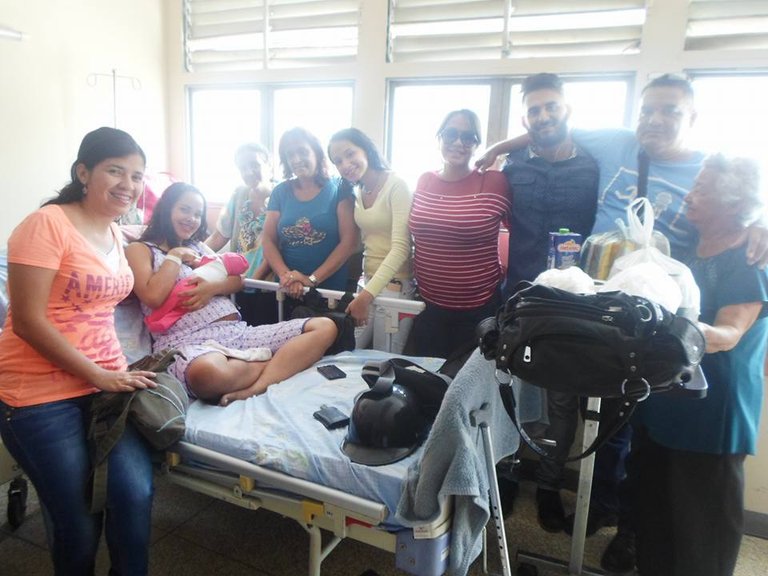
De mi propiedad.
Asumir esta carga, que es también una liberación, transforma nuestra percepción del mundo. Es el momento en que el pesado y rechinante lenguaje del “tengo que” y el “debo” comienza a desvanecerse. Estas palabras son las cadenas invisibles que nos atan a una narrativa de víctima, a una existencia reactiva donde somos peones de fuerzas externas: “el jefe, la pareja, la familia, la economía”. Son la justificación perfecta para nuestra inacción o nuestra infelicidad. Pero cuando la responsabilidad se instala en el centro de nuestro ser, emerge un vocabulario nuevo, uno de poder y autenticidad: el del “quiero” y el “elijo”. El “tengo que ir a trabajar” se revela como un “elijo ir a trabajar porque valoro la estabilidad que me proporciona o porque es un paso hacia donde quiero llegar”. El “debo llamar a mis padres” se convierte en un “quiero conectar con ellos, aunque a veces sea complicado”. El cambio es sutil en la forma, pero sísmico en el fondo. ¿Cuántas de nuestras quejas diarias comienzan con un “tengo que…”, y cuántas de esas obligaciones son, en realidad, elecciones que no nos atrevemos a llamar por su nombre?
Pero seamos brutalmente honestos con nosotros mismos, aquí, en la intimidad de este pensamiento. ¿Es tan sencillo? ¿Basta con un cambio de vocabulario para desmantelar una vida de hábitos? La verdad, mucho más incómoda, es que el mayor saboteador de nuestra libertad no siempre está afuera; a menudo duerme en nuestra propia cama. Somos arquitectos de nuestras propias jaulas y maestros del autoengaño. Con una mano, enarbolamos la bandera del “elijo”, mientras que con la otra, en secreto, seguimos pagando tributo al miedo, a la comodidad del victimismo o a la adictiva aprobación ajena. Nos contamos la historia de que “elegimos” este trabajo estresante por “responsabilidad”, cuando en el fondo nos aterra el fracaso de intentar algo propio. Decimos que “elegimos” perdonar, cuando en realidad solo estamos evitando una confrontación que nos parece insoportable. Esta es la cruda paradoja: podemos entender el mapa a la perfección y, aun así, elegir conscientemente perdernos en el laberinto, porque el monstruo que más tememos encontrar al final no es el fracaso, sino el reflejo de nuestra propia y desnuda responsabilidad.
Esta soberanía personal, sin embargo, no nace en el vacío. Desde que llegamos al mundo, somos insertados en un complejo andamiaje de control. La familia es el primer microcosmos donde aprendemos las reglas del juego. Allí se nos enseña el “deber ser” antes que el “querer ser”. Se nos inculcan lealtades, expectativas y roles que a menudo cargamos durante décadas sin cuestionar. Más tarde, la sociedad extiende esta red con sus leyes, sus normas de comportamiento y sus códigos no escritos. Vivimos bajo un contrato social que, si bien necesario para la convivencia, puede limar nuestras aristas más auténticas en su afán de homogeneizar. El psiquiatra y filósofo Carl Jung lo expresó con una claridad implacable: “Hasta que lo inconsciente no se haga consciente, el subconsciente dirigirá tu vida y tú le llamarás destino”. ¿En qué medida mis valores son realmente míos y no un eco de las voces que me criaron o de la sociedad que me rodea?… ¿Lo has pensado alguna vez?
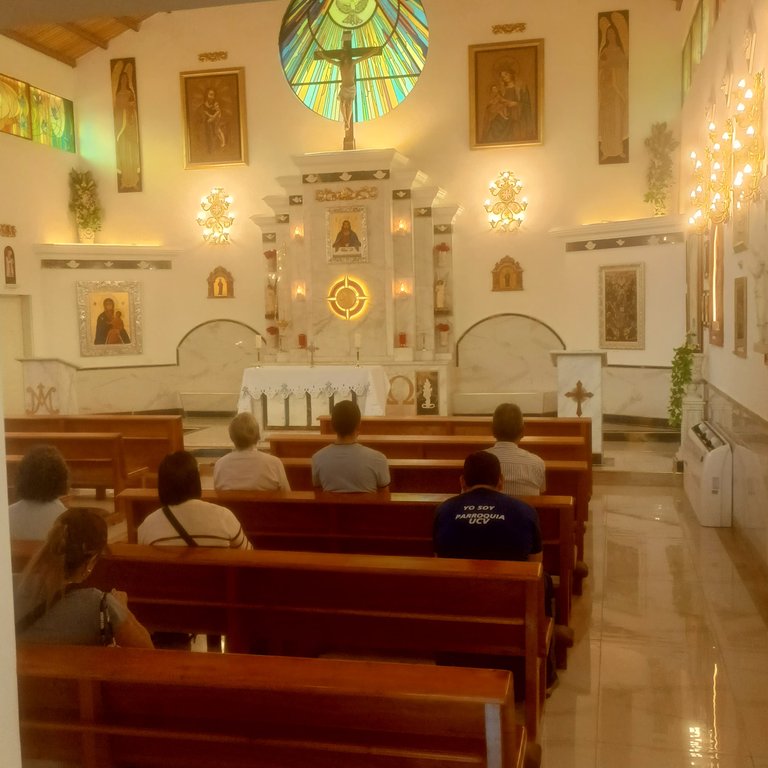
De mi propiedad.
Y luego está la religión, quizás la estructura de control más profunda y antigua. Ofrece consuelo, un código moral y un sentido de trascendencia, pero a menudo lo hace a cambio de la sumisión de la voluntad individual a un dogma, a una deidad o a una institución. El “debo” aquí adquiere una dimensión sagrada, y el miedo al castigo, divino o social, se convierte en un poderoso regulador de la conducta. Romper con estas normas no es solo un acto de desobediencia, sino que puede vivirse como una traición a lo más sagrado impuesto.
Es en este campo de batalla entre la voluntad interna y el control externo donde se libra la verdadera lucha por la responsabilidad. El existencialista Jean-Paul Sartre afirmó que “el hombre está condenado a ser libre”. Esta condena es la imposibilidad de escapar de la elección. Incluso no elegir es una elección. Culpar a la crianza, al sistema o a un designio divino es una tentativa de eludir esta condena, de entregar las llaves de nuestro reino interior. Pero, ¿qué sucede cuando aceptamos las llaves? Sucede que debemos hacernos cargo de las consecuencias. Si mi elección de cambiar de carrera me lleva a la incertidumbre financiera, esa es mi cosecha. Si mi decisión de poner un límite a un familiar genera un conflicto, ese es el precio de mi paz. ¿Asumo realmente el coste de mis elecciones, o busco un culpable cuando el resultado no es el esperado y me refugio de nuevo en la comodidad del “me hicieron”?
El psiquiatra Viktor Frankl, superviviente de los campos de concentración nazis, descubrió en las condiciones más inhumanas la esencia de esta libertad final. Escribió: “Entre el estímulo y la respuesta hay un espacio. En ese espacio reside nuestro poder para elegir nuestra respuesta. En nuestra respuesta reside nuestro crecimiento y nuestra libertad”. Ese espacio es nuestro campo de juego —ya lo había comentado en una publicación anterior, es que los temas humanos se entrelazan—. Puede ser diminuto, casi imperceptible, pero en él reside toda nuestra dignidad. No podemos controlar las acciones de los demás, ni las crisis económicas, ni las tormentas, pero siempre, siempre, podemos elegir cómo respondemos ante ellas. Esta no es una invitación al optimismo ingenuo, sino a un realismo poderoso. Es la diferencia entre ser el termómetro que simplemente refleja la temperatura del ambiente, y ser el termostato que decide a qué temperatura quiere vivir. Si hoy despojara mi vida de todo “debo” y “tengo”, ¿qué quedaría? ¿Qué “quiero” auténtico emergería de entre las ruinas de la obligación? La respuesta puede ser tan liberadora como inquietante, y es un viaje que nadie más puede emprender por nosotros. ¿Qué me puedes comentar al respecto?
La vida se desenvuelve como un tejido que confeccionamos puntada a puntada, cada día. La mayoría de estas puntadas son decisiones, algunas casi automáticas como el café de la mañana, y otras, monumentales, que alteran el patrón completo de nuestro tapiz existencial. En este telar se enredan los hilos de las circunstancias, los afectos que nos anclan o nos impulsan, y las situaciones que nos ponen a prueba. Sin embargo, bajo toda esa complejidad yace una verdad tan simple como aterradora: soy el único responsable de mis pensamientos, mis acciones y, sí, incluso de mis emociones. Esta premisa no es una simple frase motivacional, es el umbral hacia una forma de existencia radicalmente distinta. Te explico.

De mi propiedad.
Asumir esta carga, que es también una liberación, transforma nuestra percepción del mundo. Es el momento en que el pesado y rechinante lenguaje del “tengo que” y el “debo” comienza a desvanecerse. Estas palabras son las cadenas invisibles que nos atan a una narrativa de víctima, a una existencia reactiva donde somos peones de fuerzas externas: “el jefe, la pareja, la familia, la economía”. Son la justificación perfecta para nuestra inacción o nuestra infelicidad. Pero cuando la responsabilidad se instala en el centro de nuestro ser, emerge un vocabulario nuevo, uno de poder y autenticidad: el del “quiero” y el “elijo”. El “tengo que ir a trabajar” se revela como un “elijo ir a trabajar porque valoro la estabilidad que me proporciona o porque es un paso hacia donde quiero llegar”. El “debo llamar a mis padres” se convierte en un “quiero conectar con ellos, aunque a veces sea complicado”. El cambio es sutil en la forma, pero sísmico en el fondo. ¿Cuántas de nuestras quejas diarias comienzan con un “tengo que…”, y cuántas de esas obligaciones son, en realidad, elecciones que no nos atrevemos a llamar por su nombre?
Pero seamos brutalmente honestos con nosotros mismos, aquí, en la intimidad de este pensamiento. ¿Es tan sencillo? ¿Basta con un cambio de vocabulario para desmantelar una vida de hábitos? La verdad, mucho más incómoda, es que el mayor saboteador de nuestra libertad no siempre está afuera; a menudo duerme en nuestra propia cama. Somos arquitectos de nuestras propias jaulas y maestros del autoengaño. Con una mano, enarbolamos la bandera del “elijo”, mientras que con la otra, en secreto, seguimos pagando tributo al miedo, a la comodidad del victimismo o a la adictiva aprobación ajena. Nos contamos la historia de que “elegimos” este trabajo estresante por “responsabilidad”, cuando en el fondo nos aterra el fracaso de intentar algo propio. Decimos que “elegimos” perdonar, cuando en realidad solo estamos evitando una confrontación que nos parece insoportable. Esta es la cruda paradoja: podemos entender el mapa a la perfección y, aun así, elegir conscientemente perdernos en el laberinto, porque el monstruo que más tememos encontrar al final no es el fracaso, sino el reflejo de nuestra propia y desnuda responsabilidad.
Esta soberanía personal, sin embargo, no nace en el vacío. Desde que llegamos al mundo, somos insertados en un complejo andamiaje de control. La familia es el primer microcosmos donde aprendemos las reglas del juego. Allí se nos enseña el “deber ser” antes que el “querer ser”. Se nos inculcan lealtades, expectativas y roles que a menudo cargamos durante décadas sin cuestionar. Más tarde, la sociedad extiende esta red con sus leyes, sus normas de comportamiento y sus códigos no escritos. Vivimos bajo un contrato social que, si bien necesario para la convivencia, puede limar nuestras aristas más auténticas en su afán de homogeneizar. El psiquiatra y filósofo Carl Jung lo expresó con una claridad implacable: “Hasta que lo inconsciente no se haga consciente, el subconsciente dirigirá tu vida y tú le llamarás destino”. ¿En qué medida mis valores son realmente míos y no un eco de las voces que me criaron o de la sociedad que me rodea?… ¿Lo has pensado alguna vez?

De mi propiedad.
Y luego está la religión, quizás la estructura de control más profunda y antigua. Ofrece consuelo, un código moral y un sentido de trascendencia, pero a menudo lo hace a cambio de la sumisión de la voluntad individual a un dogma, a una deidad o a una institución. El “debo” aquí adquiere una dimensión sagrada, y el miedo al castigo, divino o social, se convierte en un poderoso regulador de la conducta. Romper con estas normas no es solo un acto de desobediencia, sino que puede vivirse como una traición a lo más sagrado impuesto.
Es en este campo de batalla entre la voluntad interna y el control externo donde se libra la verdadera lucha por la responsabilidad. El existencialista Jean-Paul Sartre afirmó que “el hombre está condenado a ser libre”. Esta condena es la imposibilidad de escapar de la elección. Incluso no elegir es una elección. Culpar a la crianza, al sistema o a un designio divino es una tentativa de eludir esta condena, de entregar las llaves de nuestro reino interior. Pero, ¿qué sucede cuando aceptamos las llaves? Sucede que debemos hacernos cargo de las consecuencias. Si mi elección de cambiar de carrera me lleva a la incertidumbre financiera, esa es mi cosecha. Si mi decisión de poner un límite a un familiar genera un conflicto, ese es el precio de mi paz. ¿Asumo realmente el coste de mis elecciones, o busco un culpable cuando el resultado no es el esperado y me refugio de nuevo en la comodidad del “me hicieron”?
El psiquiatra Viktor Frankl, superviviente de los campos de concentración nazis, descubrió en las condiciones más inhumanas la esencia de esta libertad final. Escribió: “Entre el estímulo y la respuesta hay un espacio. En ese espacio reside nuestro poder para elegir nuestra respuesta. En nuestra respuesta reside nuestro crecimiento y nuestra libertad”. Ese espacio es nuestro campo de juego —ya lo había comentado en una publicación anterior, es que los temas humanos se entrelazan—. Puede ser diminuto, casi imperceptible, pero en él reside toda nuestra dignidad. No podemos controlar las acciones de los demás, ni las crisis económicas, ni las tormentas, pero siempre, siempre, podemos elegir cómo respondemos ante ellas. Esta no es una invitación al optimismo ingenuo, sino a un realismo poderoso. Es la diferencia entre ser el termómetro que simplemente refleja la temperatura del ambiente, y ser el termostato que decide a qué temperatura quiere vivir. Si hoy despojara mi vida de todo “debo” y “tengo”, ¿qué quedaría? ¿Qué “quiero” auténtico emergería de entre las ruinas de la obligación? La respuesta puede ser tan liberadora como inquietante, y es un viaje que nadie más puede emprender por nosotros. ¿Qué me puedes comentar al respecto?
Creciendo como persona, busca y encuentra lo que necesitas para ser un mejor humano en la Comunidad Holos&Lotus. De seguro, hay un tema que te llamará la atención.
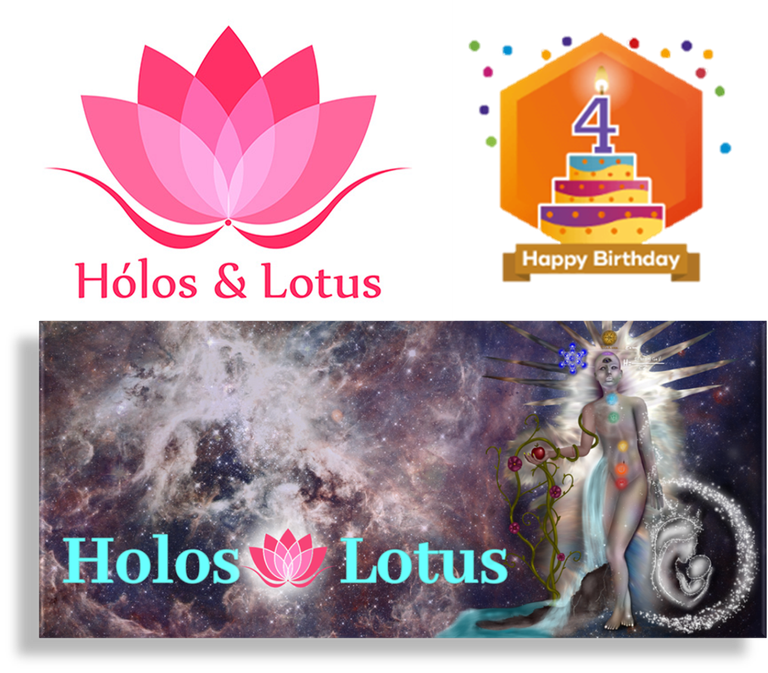
Infografía propia de la Comunidad Holos&Lotus
Dedicado a todos aquellos que, día a día, hacen del mundo un lugar mejor.
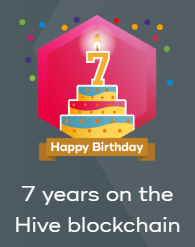

Who Rules Your Inner Kingdom?
Life unfolds like a fabric we weave stitch by stitch, every day. Most of these stitches are decisions, some almost automatic, like our morning coffee, and others, monumental, that alter the entire pattern of our existential tapestry. The threads of circumstance, the emotions that anchor or drive us, and the situations that test us are woven into this loom. However, beneath all this complexity lies a truth as simple as it is terrifying: I am solely responsible for my thoughts, my actions, and, yes, even my emotions. This premise is not a simple motivational phrase; it is the threshold to a radically different way of existing. Let me explain.
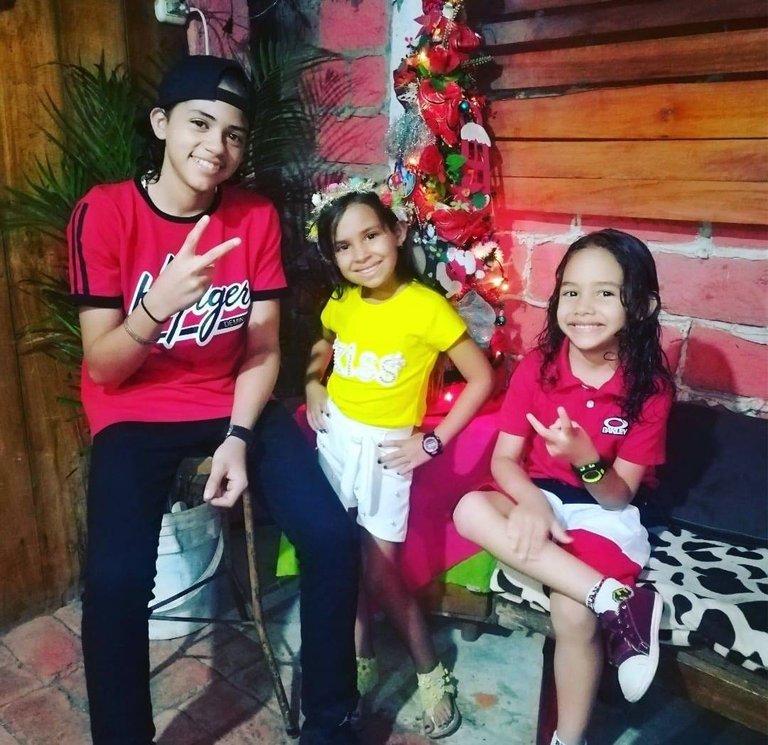
Courtesy of my niece Gilda, via WhatsApp.
Assuming this burden, which is also a liberation, transforms our perception of the world. It is the moment when the heavy, creaking language of "have to" and "should" begins to fade away. These words are the invisible chains that bind us to a victim narrative, to a reactive existence where we are pawns of external forces: “the boss, the partner, the family, the economy.” They are the perfect justification for our inaction or our unhappiness. But when responsibility settles at the centre of our being, a new vocabulary emerges, one of power and authenticity: that of “I want” and “I choose.” “I have to go to work” reveals itself as “I choose to go to work because I value the stability it provides or because it's a step toward where I want to go.” “I must call my parents” becomes “I want to connect with them, even if it's sometimes complicated.” The shift is subtle in form, but seismic at its core. How many of our daily complaints begin with “I have to…”, and how many of those obligations are, in reality, choices we dare not call by name?
But let's be brutally honest with ourselves, here, in the intimacy of this thought. Is it so simple? Is a change of vocabulary enough to dismantle a lifetime of habits? The much more uncomfortable truth is that the greatest saboteur of our freedom isn't always outside; it often sleeps in our beds. We are architects of our cages and masters of self-deception. With one hand, we fly the flag of "I choose," while with the other, we secretly continue to pay tribute to fear, to the comfort of victimhood, or to the addictive approval of others. We tell ourselves the story that we "choose" this stressful job out of "responsibility," when deep down, we're terrified of failing to try something of our own. We say we "choose" to forgive when in reality, we're just avoiding a confrontation that seems unbearable. This is the stark paradox: we can understand the map perfectly and still consciously choose to get lost in the labyrinth, because the monster we most fear finding at the end isn't failure, but the reflection of our naked responsibility.
This personal sovereignty, however, is not born in a vacuum. From the moment we come into the world, we are inserted into a complex framework of control. The family is the first microcosm where we learn the rules of the game. There, we are taught what "should be" before what "we want to be." We are instilled with loyalties, expectations, and roles that we often carry for decades without question. Later, society extends this network through its laws, norms of behaviour, and unwritten codes. We live under a social contract that, while necessary for coexistence, can erode our most authentic edges in its desire to homogenise. The psychiatrist and philosopher Carl Jung expressed it with implacable clarity: "Until the unconscious becomes conscious, the subconscious will direct your life, and you will call it destiny." To what extent are my values truly mine and not an echo of the voices that raised me or of the society that surrounds me? Have you ever considered this?
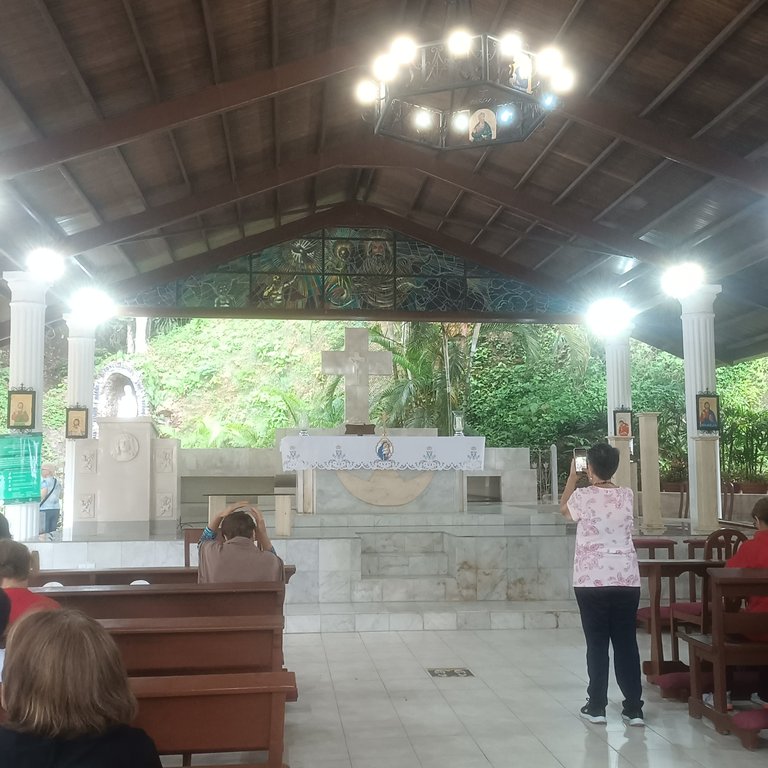
Courtesy of my niece Gilda, via WhatsApp.
And then there is religion, perhaps the deepest and oldest structure of control. It offers comfort, a moral code, and a sense of transcendence, but often does so at the cost of submitting the individual will to a dogma, a deity, or an institution. The “must” here takes on a sacred dimension, and the fear of punishment, divine or social, becomes a powerful regulator of behaviour. Breaking these norms is not only an act of disobedience but can be experienced as a betrayal of the most sacred imposed upon us.
It is on this battlefield between internal will and external control that the true struggle for responsibility is waged. The existentialist Jean-Paul Sartre stated that “man is condemned to be free.” This condemnation is the impossibility of escaping choice. Even not choosing is a choice. Blaming upbringing, the system, or a divine plan is an attempt to evade this condemnation, to hand over the keys to our inner kingdom. But what happens when we accept the keys? It turns out we must accept the consequences. If my choice to change careers leads to financial uncertainty, that's my payback. If my decision to set a boundary with a family member creates conflict, that's the price I pay for my peace. Do I truly accept the cost of my choices, or do I look for someone to blame when the outcome isn't what I expected and retreat into the comfort of "I was made to do it"?
Psychiatrist Viktor Frankl, a survivor of the Nazi concentration camps, discovered the essence of this ultimate freedom in the most inhumane conditions. He wrote: “Between stimulus and response, there is a space. In that space lies our power to choose our response. In our response lies our growth and our freedom.” That space is our playing field —as I mentioned in a previous post, human themes intertwine. It may be tiny, almost imperceptible, but in it lies all our dignity. We cannot control the actions of others, nor economic crises, nor storms, but we can always, always, choose how we respond to them. This is not an invitation to naive optimism, but to a powerful realism. It is the difference between being the thermometer that simply reflects the ambient temperature, and being the thermostat that decides at what temperature it wants to live. If I were to strip my life today of all “shoulds” and “haves,” what would remain? What authentic “want” would emerge from the ruins of obligation? The answer can be as liberating as it is unsettling, and it's a journey no one else can undertake for us. What can you tell me about it?
Growing as a person, seek and find what you need to be a better person in the Holos&Lotus Community. Surely, there's a topic that will catch your attention.

Community's own infographic Holos&Lotus
🔆+++🔆+++🔆+++🔆+++🔆+++🔆+++🔆+++🔆+++🔆+++🔆
Dedicated to all those who, day after day, make the world a better place.


Dedicado a todos aquellos que, día a día, hacen del mundo un lugar mejor.


Who Rules Your Inner Kingdom?
Life unfolds like a fabric we weave stitch by stitch, every day. Most of these stitches are decisions, some almost automatic, like our morning coffee, and others, monumental, that alter the entire pattern of our existential tapestry. The threads of circumstance, the emotions that anchor or drive us, and the situations that test us are woven into this loom. However, beneath all this complexity lies a truth as simple as it is terrifying: I am solely responsible for my thoughts, my actions, and, yes, even my emotions. This premise is not a simple motivational phrase; it is the threshold to a radically different way of existing. Let me explain.

Courtesy of my niece Gilda, via WhatsApp.
Assuming this burden, which is also a liberation, transforms our perception of the world. It is the moment when the heavy, creaking language of "have to" and "should" begins to fade away. These words are the invisible chains that bind us to a victim narrative, to a reactive existence where we are pawns of external forces: “the boss, the partner, the family, the economy.” They are the perfect justification for our inaction or our unhappiness. But when responsibility settles at the centre of our being, a new vocabulary emerges, one of power and authenticity: that of “I want” and “I choose.” “I have to go to work” reveals itself as “I choose to go to work because I value the stability it provides or because it's a step toward where I want to go.” “I must call my parents” becomes “I want to connect with them, even if it's sometimes complicated.” The shift is subtle in form, but seismic at its core. How many of our daily complaints begin with “I have to…”, and how many of those obligations are, in reality, choices we dare not call by name?
But let's be brutally honest with ourselves, here, in the intimacy of this thought. Is it so simple? Is a change of vocabulary enough to dismantle a lifetime of habits? The much more uncomfortable truth is that the greatest saboteur of our freedom isn't always outside; it often sleeps in our beds. We are architects of our cages and masters of self-deception. With one hand, we fly the flag of "I choose," while with the other, we secretly continue to pay tribute to fear, to the comfort of victimhood, or to the addictive approval of others. We tell ourselves the story that we "choose" this stressful job out of "responsibility," when deep down, we're terrified of failing to try something of our own. We say we "choose" to forgive when in reality, we're just avoiding a confrontation that seems unbearable. This is the stark paradox: we can understand the map perfectly and still consciously choose to get lost in the labyrinth, because the monster we most fear finding at the end isn't failure, but the reflection of our naked responsibility.
This personal sovereignty, however, is not born in a vacuum. From the moment we come into the world, we are inserted into a complex framework of control. The family is the first microcosm where we learn the rules of the game. There, we are taught what "should be" before what "we want to be." We are instilled with loyalties, expectations, and roles that we often carry for decades without question. Later, society extends this network through its laws, norms of behaviour, and unwritten codes. We live under a social contract that, while necessary for coexistence, can erode our most authentic edges in its desire to homogenise. The psychiatrist and philosopher Carl Jung expressed it with implacable clarity: "Until the unconscious becomes conscious, the subconscious will direct your life, and you will call it destiny." To what extent are my values truly mine and not an echo of the voices that raised me or of the society that surrounds me? Have you ever considered this?

Courtesy of my niece Gilda, via WhatsApp.
And then there is religion, perhaps the deepest and oldest structure of control. It offers comfort, a moral code, and a sense of transcendence, but often does so at the cost of submitting the individual will to a dogma, a deity, or an institution. The “must” here takes on a sacred dimension, and the fear of punishment, divine or social, becomes a powerful regulator of behaviour. Breaking these norms is not only an act of disobedience but can be experienced as a betrayal of the most sacred imposed upon us.
It is on this battlefield between internal will and external control that the true struggle for responsibility is waged. The existentialist Jean-Paul Sartre stated that “man is condemned to be free.” This condemnation is the impossibility of escaping choice. Even not choosing is a choice. Blaming upbringing, the system, or a divine plan is an attempt to evade this condemnation, to hand over the keys to our inner kingdom. But what happens when we accept the keys? It turns out we must accept the consequences. If my choice to change careers leads to financial uncertainty, that's my payback. If my decision to set a boundary with a family member creates conflict, that's the price I pay for my peace. Do I truly accept the cost of my choices, or do I look for someone to blame when the outcome isn't what I expected and retreat into the comfort of "I was made to do it"?
Psychiatrist Viktor Frankl, a survivor of the Nazi concentration camps, discovered the essence of this ultimate freedom in the most inhumane conditions. He wrote: “Between stimulus and response, there is a space. In that space lies our power to choose our response. In our response lies our growth and our freedom.” That space is our playing field —as I mentioned in a previous post, human themes intertwine. It may be tiny, almost imperceptible, but in it lies all our dignity. We cannot control the actions of others, nor economic crises, nor storms, but we can always, always, choose how we respond to them. This is not an invitation to naive optimism, but to a powerful realism. It is the difference between being the thermometer that simply reflects the ambient temperature, and being the thermostat that decides at what temperature it wants to live. If I were to strip my life today of all “shoulds” and “haves,” what would remain? What authentic “want” would emerge from the ruins of obligation? The answer can be as liberating as it is unsettling, and it's a journey no one else can undertake for us. What can you tell me about it?
Life unfolds like a fabric we weave stitch by stitch, every day. Most of these stitches are decisions, some almost automatic, like our morning coffee, and others, monumental, that alter the entire pattern of our existential tapestry. The threads of circumstance, the emotions that anchor or drive us, and the situations that test us are woven into this loom. However, beneath all this complexity lies a truth as simple as it is terrifying: I am solely responsible for my thoughts, my actions, and, yes, even my emotions. This premise is not a simple motivational phrase; it is the threshold to a radically different way of existing. Let me explain.

Courtesy of my niece Gilda, via WhatsApp.
Assuming this burden, which is also a liberation, transforms our perception of the world. It is the moment when the heavy, creaking language of "have to" and "should" begins to fade away. These words are the invisible chains that bind us to a victim narrative, to a reactive existence where we are pawns of external forces: “the boss, the partner, the family, the economy.” They are the perfect justification for our inaction or our unhappiness. But when responsibility settles at the centre of our being, a new vocabulary emerges, one of power and authenticity: that of “I want” and “I choose.” “I have to go to work” reveals itself as “I choose to go to work because I value the stability it provides or because it's a step toward where I want to go.” “I must call my parents” becomes “I want to connect with them, even if it's sometimes complicated.” The shift is subtle in form, but seismic at its core. How many of our daily complaints begin with “I have to…”, and how many of those obligations are, in reality, choices we dare not call by name?
But let's be brutally honest with ourselves, here, in the intimacy of this thought. Is it so simple? Is a change of vocabulary enough to dismantle a lifetime of habits? The much more uncomfortable truth is that the greatest saboteur of our freedom isn't always outside; it often sleeps in our beds. We are architects of our cages and masters of self-deception. With one hand, we fly the flag of "I choose," while with the other, we secretly continue to pay tribute to fear, to the comfort of victimhood, or to the addictive approval of others. We tell ourselves the story that we "choose" this stressful job out of "responsibility," when deep down, we're terrified of failing to try something of our own. We say we "choose" to forgive when in reality, we're just avoiding a confrontation that seems unbearable. This is the stark paradox: we can understand the map perfectly and still consciously choose to get lost in the labyrinth, because the monster we most fear finding at the end isn't failure, but the reflection of our naked responsibility.
This personal sovereignty, however, is not born in a vacuum. From the moment we come into the world, we are inserted into a complex framework of control. The family is the first microcosm where we learn the rules of the game. There, we are taught what "should be" before what "we want to be." We are instilled with loyalties, expectations, and roles that we often carry for decades without question. Later, society extends this network through its laws, norms of behaviour, and unwritten codes. We live under a social contract that, while necessary for coexistence, can erode our most authentic edges in its desire to homogenise. The psychiatrist and philosopher Carl Jung expressed it with implacable clarity: "Until the unconscious becomes conscious, the subconscious will direct your life, and you will call it destiny." To what extent are my values truly mine and not an echo of the voices that raised me or of the society that surrounds me? Have you ever considered this?

Courtesy of my niece Gilda, via WhatsApp.
And then there is religion, perhaps the deepest and oldest structure of control. It offers comfort, a moral code, and a sense of transcendence, but often does so at the cost of submitting the individual will to a dogma, a deity, or an institution. The “must” here takes on a sacred dimension, and the fear of punishment, divine or social, becomes a powerful regulator of behaviour. Breaking these norms is not only an act of disobedience but can be experienced as a betrayal of the most sacred imposed upon us.
It is on this battlefield between internal will and external control that the true struggle for responsibility is waged. The existentialist Jean-Paul Sartre stated that “man is condemned to be free.” This condemnation is the impossibility of escaping choice. Even not choosing is a choice. Blaming upbringing, the system, or a divine plan is an attempt to evade this condemnation, to hand over the keys to our inner kingdom. But what happens when we accept the keys? It turns out we must accept the consequences. If my choice to change careers leads to financial uncertainty, that's my payback. If my decision to set a boundary with a family member creates conflict, that's the price I pay for my peace. Do I truly accept the cost of my choices, or do I look for someone to blame when the outcome isn't what I expected and retreat into the comfort of "I was made to do it"?
Psychiatrist Viktor Frankl, a survivor of the Nazi concentration camps, discovered the essence of this ultimate freedom in the most inhumane conditions. He wrote: “Between stimulus and response, there is a space. In that space lies our power to choose our response. In our response lies our growth and our freedom.” That space is our playing field —as I mentioned in a previous post, human themes intertwine. It may be tiny, almost imperceptible, but in it lies all our dignity. We cannot control the actions of others, nor economic crises, nor storms, but we can always, always, choose how we respond to them. This is not an invitation to naive optimism, but to a powerful realism. It is the difference between being the thermometer that simply reflects the ambient temperature, and being the thermostat that decides at what temperature it wants to live. If I were to strip my life today of all “shoulds” and “haves,” what would remain? What authentic “want” would emerge from the ruins of obligation? The answer can be as liberating as it is unsettling, and it's a journey no one else can undertake for us. What can you tell me about it?
Growing as a person, seek and find what you need to be a better person in the Holos&Lotus Community. Surely, there's a topic that will catch your attention.

Community's own infographic Holos&Lotus
Dedicated to all those who, day after day, make the world a better place.


Dedicated to all those who, day after day, make the world a better place.

